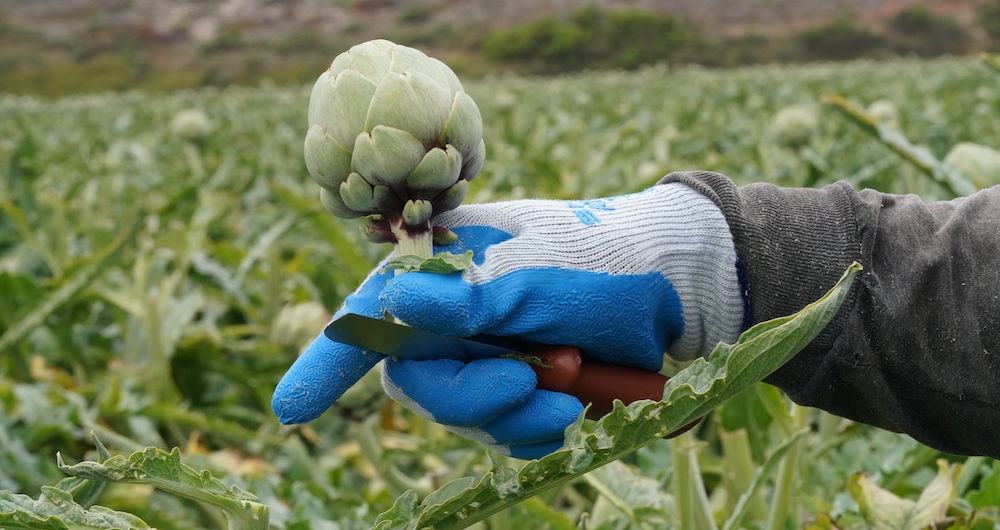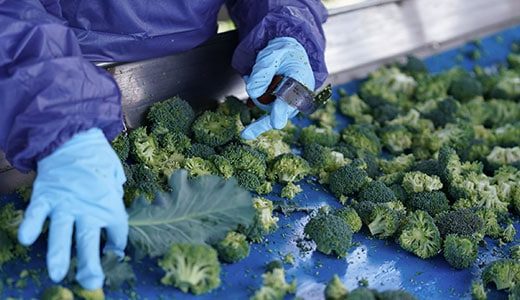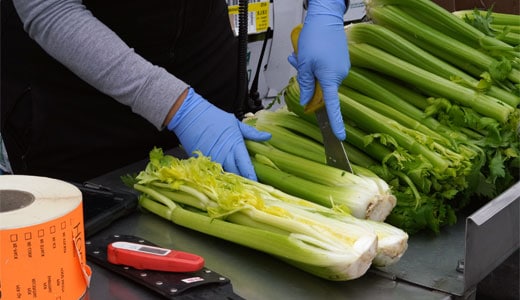Posted by Zosi Team

You’ve probably noticed more than a few farm-to-table restaurants popping up in your city. This trend is a direct result of modern-day consumer behavior and shifting values. At home, we’re increasingly aware of and concerned about every point in the food supply chain, from sustainable agriculture to eco-friendly food packaging.
The renewed emphasis on farm to fork holds within it both demands and lessons for food producers worldwide. As environmentalism and a laser focus on food safety rise to global consciousness, consumers now demand sustainable practices from companies just like yours. Your words, values, and actions matter.
According to Accenture, 62% of consumers are moved to purchase from organizations committed to improving the environment. Zero waste and energy efficiency are now the names of the game. In the produce industry, this means producers and leaders must not only focus on sustainable agriculture practices dealing with water and soil health, but also sustainable food packaging, waste, and energy use. The fact remains that fruits and vegetables are the most wasted food type worldwide. In fact, such food loss generates 8% of greenhouse gas emissions around the world.
So, what can you do today to satisfy consumers, generate more demand, and decrease your environmental footprint? This blog overviews a few key ways you can elevate your sustainable practices.
Say Goodbye to Single-Use Plastic, Wood, And Cardboard
Straws, cling-wrap, resealable bags… as consumers we know each of these is a nightmare for our environment. The catch? Plastic doesn’t have to be a taboo in food production. In fact, plastics are often more beneficial solutions than you may first think. Metal, wood, and paper products typically weigh more than their plastic alternatives? This excess weight raises shipping costs, requires more fuel for transport, and thus adds to the industry’s carbon footprint.
The solution? Reusable plastic. Many reusable plastics are already commonplace throughout production but here are a few ways to apply them to the food supply chain.
Sustainable Growing
To improve sustainability in the growth phase, fruits and vegetables are often cultivated with the help of plastic seedling trays and plastic irrigation systems. Plastic greenhouse covers allow for a growing season impenetrable by weather, which means more food is produced in smaller areas with better utilization of resources like water.
Sustainable Harvesting
Throughout the produce industry, plastic containers (sometimes called harvest bins) aid in transporting fruits and vegetables from the field. Reusable plastic as a means of sustainable harvesting presents a number of benefits to the food supply and thus the consumer. Plastics do not absorb moisture, meaning bacteria and other microbiological hazards have a difficult time growing on this surface. On the other hand, cheaper materials like wood or cardboard easily absorb moisture and dirt, posing a food safety risk.
Reusable plastic’s second benefit as a means of sustainable harvesting follows close behind: contamination leads to recall, destroyed product, and decreased revenue. The natural resources required to navigate food safety crisis management render even the most valiant effort unsustainable.
Sustainable Processing & Food Packaging
Reusable plastics, such as crates, in food processing can ensure a myriad of ways to reduce waste. For whole fruits and vegetables, this means proper ventilation and improved automatic sorting. For sauces, soups, and more, reusable containers provide high load capacities and multi-year solutions. Referred to as intermediate bulk containers, or IBCs, this in-between step is a more sustainable option than traditional wood barrels and tanks.
Of course, we can’t discuss sustainability in the produce industry (and the food industry on the whole) without mentioning reusable packaging. Sustainable food packaging cuts costs for the consumer and ensures freshness by protecting against bacteria and UV light. This leads to, you guessed it, reduced food waste.
Sustainable Distribution
The materials producers use for distribution often have the most tremendous environmental implications in the food supply chain. Whether food is being transported domestically or undergoing international transport, reusable plastics’ ability to safeguard against bacteria and hold up under enormous amounts of weight ensure produce safety during long journeys.
To recap, adopting reusable plastics in your fruit and vegetable production helps to:
Conclusion
Following sustainable agricultural and processing practices such as those listed here lead to positive reactions from employees and consumers. Sustainability only benefits your brand. Beyond the soft benefits, you’ll reduce costs and improve efficiency. To learn more about Zosi’s sustainability training, click here.
Subscribe to Insider Insights
 Never Miss an Update. Sign Up for Zosi’s e-Newsletter.
Never Miss an Update. Sign Up for Zosi’s e-Newsletter.


 Essentials of Produce Safety – eLearning Course
Essentials of Produce Safety – eLearning Course
 Food Safety Crisis Management Simulation
Food Safety Crisis Management Simulation
 Essentials of Produce Safety – Fresh Ed Proficiency Exam
Essentials of Produce Safety – Fresh Ed Proficiency Exam
